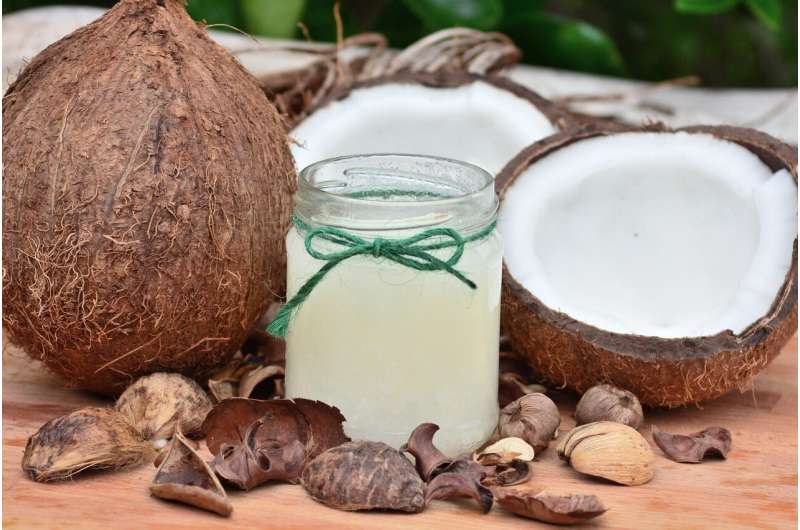This article has been reviewed according to Science X's editorial process and policies. Editors have highlighted the following attributes while ensuring the content's credibility:
fact-checked
trusted source
proofread
Oil pulling for oral health: To swish or not to swish?

After scrolling social media, you might be tempted to ditch your typical oral care regimen in favor of melted coconut oil, or other similar oils, for a practice known as oil pulling. A method of traditional Ayurvedic medicine native to India, oil pulling involves swishing oil in your mouth for about 10–15 minutes before spitting it out, and proponents of the process have touted various oral health benefits.
Y. Natalie Jeong, professor and chair of the Department of Periodontology at Tufts University School of Dental Medicine, explains the claims and what really needs to be done to take care of your teeth and gums.
Are there benefits to oil pulling for oral health?
Supporters of oil pulling believe it cleanses the mouth naturally without chemicals, enhancing dental hygiene. Additionally, some claims suggest it detoxifies the body, improves skin health, and alleviates symptoms of migraines and allergies.
Is there evidence to support these benefits?
Currently, there is no robust scientific evidence to confirm that oil pulling effectively reduces cavities, whitens teeth, or improves overall oral health. This doesn't necessarily mean it is ineffective; rather, it indicates that its efficacy has not been scientifically established through sufficient, well-designed research.
Challenges such as small sample sizes, lack of control groups, and uncontrolled variables contribute to this lack of definitive evidence. Consequently, the American Dental Association does not endorse oil pulling as a dental hygiene practice.
While oil pulling might help remove loose debris around the gums and teeth through its swishing action, it is less effective than brushing and flossing. Once a biofilm or plaque has formed, oil pulling is no more effective than rinsing with water, as it cannot disrupt plaque like mechanical methods such as brushing or flossing can
Can oil pulling be harmful to your oral health?
Oil pulling is generally considered safe and unlikely to cause harm directly. However, there is a risk if individuals become overly reliant on its perceived benefits and neglect established oral hygiene practices, such as brushing, flossing, and avoiding smoking.
Completely substituting traditional dental care with oil pulling can pose significant risks to oral health. Additionally, accidentally swallowing large amounts of oil during the process could lead to digestive issues like an upset stomach or diarrhea.
What do you tell your own patients about oil pulling?
I generally do not recommend oil pulling as there is no solid scientific evidence supporting its effectiveness. There are other, more effective methods proven to enhance oral health, such as:
- Brushing your teeth: Brushing after meals helps remove food debris and plaque trapped between your teeth and gums. Remember to brush your tongue as well, as bacteria can thrive there.
- Flossing: Flossing at least once a day helps remove food particles and plaque from between the teeth and along the gum line where your toothbrush can't reach.
While I wouldn't discourage those who want to from using oil pulling as a pre-brushing rinse, it's important to follow it with brushing and flossing. Adding oil pulling to your routine is unlikely to cause harm, but it should not be expected to provide significant benefits.





















